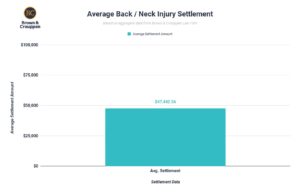In Missouri, there aren’t any limits on the amount of damages that can be recovered in a wrongful death lawsuit, unless that lawsuit arises out of medical malpractice. When a loved one dies because of someone else’s negligence or wrongful conduct, it can be an emotionally and financially devastating experience for the surviving family members. While nothing can bring back their loved one, filing a wrongful death lawsuit can help the family members recover damages for their losses.
In Missouri, there are limits on the amount of money (known as damages) that can be recovered in a wrongful death lawsuit. The damages cap is limited to claims that arise out of medical malpractice suits and do not apply generally to deaths arising out of personal injury, such as death resulting from a car crash (which have no cap). For wrongful deaths arising out of medical malpractice that occurred on or after August 28, 2015, the damages cap is $700,000. However, if the wrongful act or omission occurred before August 28, 2015, the damages cap is $500,000.
It’s important to note that these limits only apply to non-economic damages, such as pain and suffering and loss of companionship. Economic damages, such as medical expenses and lost income, are not subject to the damages cap.
Damage Cap for Wrongful Death Cases in Missouri
A damage cap is a limit on the amount of compensation you can recover in a civil lawsuit. Your compensation may be subjected to certain wrongful death damage caps in Missouri, but not all damages are capped.
- Economic damages: Damages that are associated with compensation for your monetary losses stemming from the death. There is no fixed limit on these damages, but you are limited to the amount you can prove.
- Non-economic damages: Include compensation for your family’s emotional losses. There is no cap on non-economic damages in wrongful death claims in Missouri except in medical malpractice claims. The medical malpractice non-economic damages cap in Missouri is $700,000.
- Punitive damages: Those that are awarded as a punishment against defendants whose conduct was intentional or outrageous. Missouri limits punitive damages in most cases to $500,000 or five times the total economic and non-economic damages. If the death is the result of a felony for which the defendant is convicted or pleads guilty, the cap does not apply.
What Damages Can Be Recovered in a Wrongful Death Lawsuit?
In a wrongful death lawsuit, the surviving family members of the deceased person can recover damages for their losses. These damages include the following…
Economic Damages
Economic damages refer to the monetary losses incurred as a result of the wrongful death. Economic damages that may be included are as follows:
- Medical expenses: If the deceased person received medical treatment before their death, the surviving family members may recover damages for the medical expenses incurred.
- Lost income: If the deceased person was the primary breadwinner of the family, the surviving family members may recover damages for the lost income and benefits.
- Funeral and burial expenses: The surviving family members may recover damages for the funeral and burial expenses incurred.
Non-Economic Damages
Non-economic damages refer to the intangible losses incurred as a result of the wrongful death. Non-economic damages may include any of these:
- Pain and suffering: The surviving family members may recover damages for the pain and suffering endured by the deceased person before their death.
- Loss of companionship (also known as consortium): The surviving family members may recover damages for the loss of the deceased person’s companionship and society.
- Emotional distress: The surviving family members may recover damages for the emotional distress caused by the wrongful death.
It’s important to note that Missouri law only allows certain family members to recover damages in a wrongful death lawsuit. The surviving spouse, children, or parents of the deceased person may file a wrongful death claim. If the deceased person has no surviving spouse, children, or parents, then their siblings or personal representative can file the claim. If the deceased person was a minor, their parents or legal guardian can file the claim on their behalf. If the deceased person was an adult with no surviving family members, then their personal representative can file the claim.
It should also be noted that the statute of limitations for wrongful death in Missouri is 3 years, meaning that a wrongful death claim will only be considered by the court if it has been filed within 3 years, starting on the date of death
Why is there a Damage Cap for Wrongful Death in Missouri?
The damages cap for wrongful death in Missouri was put in place to limit the amount of non-economic damages that can be recovered in a wrongful death lawsuit that arises out of medical malpractice. Non-economic damages, such as pain and suffering and loss of companionship, are subjective and can be difficult to quantify in monetary terms. The damages cap helps to ensure that the damages awarded in a wrongful death lawsuit are reasonable and proportionate to the losses suffered by the surviving family members.
Proponents of the damages cap argue that it helps to prevent excessive jury awards, which can lead to increased insurance premiums and higher healthcare costs, though there is no evidence to show that caps actually drive costs down. They also argue that the damages cap helps to promote predictability and stability in the legal system, as it provides a clear and consistent standard for damages in wrongful death cases.
Opponents of the damages cap, on the other hand, argue that it can be unfair to the surviving family members who may have suffered significant non-economic losses as a result of the wrongful death. They argue that the damages cap can prevent them from fully recovering their losses and can leave them financially and emotionally vulnerable.
It’s worth noting that the damages cap in Missouri only applies to non-economic damages such as pain and suffering and loss of companionship. Economic damages, such as medical expenses and lost income, are not subject to the damages cap. This means that the surviving family members can still recover significant compensation for their economic losses.
Get Help With Your Wrongful Death Case From Brown & Crouppen Law Firm
While some argue that the damages cap helps to ensure that verdicts awarded in wrongful death cases are “reasonable and proportionate,” it also prevents the surviving family members from fully recovering their losses by depriving them fully of their Sixth Amendment right to a jury trial to fully adjudicate their claim. Ultimately, it’s up to the courts and lawmakers to strike a balance between these competing interests and to ensure that the legal system provides justice for all parties involved. A wrongful death lawyer can help prove a wrongful death claim to ensure the liable party is held accountable. If your loved one died due to someone else’s negligent acts or omissions, you may be eligible to receive financial compensation.
Getting started is easy. Get help from our legal team by calling us at 888-795-0694 for a free consultation or get in touch with a Missouri wrongful death attorney by requesting a free case evaluation online. And remember, there’s no upfront cost to you — if you don’t get paid, we don’t get paid.




